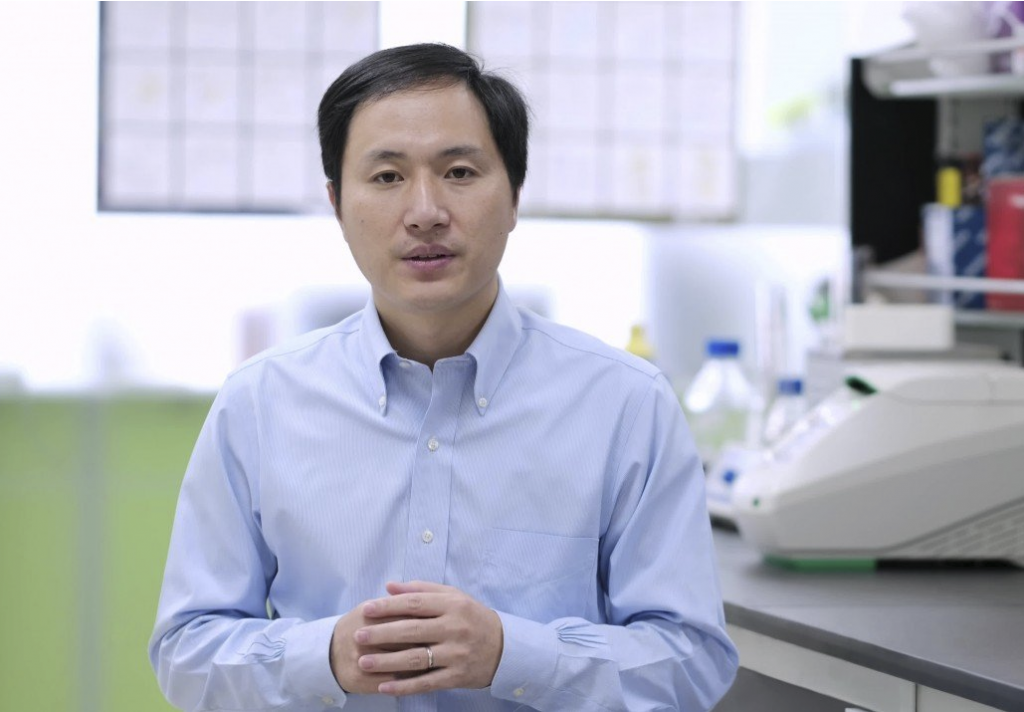
He Jiankui, the Chinese researcher who edited genes in three embryos, was sentenced to 3 years in prison in China. (Credit: MIT’s technologyreview.com)
CRISPR Scientist Charged with Illegally Practicing Medicine in China
Last year Seeflection.com published a story about a Chinese scientist who raised numerous ethical questions about the use of CRISPR when he made global headlines for gene editing embryos.
This week, Chinese officials charged He Jiankui with illegally practicing medicine in China. He had edited the genes of twins whose father was HIV positive, claiming that the twins were born immune to their father’s disease. He failed to mention there were actually three babies that went through the process.
Kristen Houser’s story published on futurism.com t turned the entire CRISPR-related story on its head. Houser wrote:
On Monday, Chinese state-run news agency Xinhua reported that He Jiankui, the researcher responsible for creating the world’s first gene-edited babies, had been sentenced to three years in prison on the charge of illegally practicing medicine.
Given that China condemned He’s research almost immediately after he announced the births of the twin babies, it’s no surprise that the researcher is being punished for his controversial experiment. But xinhuanet.com’s latest report had more news: a third gene-edited baby has officially been born.
The report included no details on the third baby, its gender, health status, whether the birth involved any complications—or if it is still alive.
But it is certain that the baby was born, meaning that at some point this year, there were not two, but three genetically engineered humans on the Earth. Along with Jiankui, two other associates were sentenced.
MIT’s technologyreview.com reported that He will pay a $425,000 fine and will be banned for life from further involvement in reproductive medicine:
“He believed his research could bring him fame and fortune and might be a major scientific coup for China, too. But after the existence of the experiment was disclosed by MIT Technology Review last November, most experts immediately condemned the research, and provincial authorities opened what they termed a criminal investigation.”
Chinese Report of Sentence
He Jiankui had worked as an associate professor with the Southern University of Science and Technology. Zhang Renli and Qin Jinzhou from two medical institutes in Guangdong Province, received jail terms of two years and 18 months with a two-year reprieve, respectively, as well as fines, said the Nanshan District People’s Court in a verdict.
Public prosecutors said that the three, who were not qualified to work as medical doctors, had knowingly violated the country’s regulations and ethical principles to conduct gene editing in assisted reproductive medicine, as reported on xinhuanet.com.
“What they did constitutes serious violations of the country’s laws and regulations,” said Professor Chen Xingliang of Law School with Peking University. “Even doctors with qualifications should not conduct anything violating laws and regulations.”
“The health risks regarding gene-editing are yet to be evaluated, and technological, societal and moral aspects should be taken into consideration,” said Zhou Qi, an academician with the Chinese Academy of Sciences.
So not only were there legal issues involved with these procedures, but scientists and others around the world were disturbed about the ethical issues such gene-editing raises.
As recently as December 30th, 2019, scientists worldwide have called for a moratorium on gene editing as reported in The Washington Post.
In a worrying development, two studies published in mid-2018 found that cells edited using CRISPR have the potential to seed tumors, raising the risk that they’d trigger cancer, but the link is still under investigation. Meanwhile, a team at Harvard University is using CRISPR in a program to bring the woolly mammoth back from extinction, which raises its own ethical questions.
read more at futurism.com







Leave A Comment